What is the Corona Virus?
Coronavirus is the name of the disease that is nowadays spreading throughout the World and causing great concern and fear in the general public. The scientific name is coronavirus disease COVID-19.
In the past a similar disease was spread around the World from the Middle East called Middle East Respiratory Syndrome (which became well known during the Umra/Hajj pilgrimage season).
What happens to someone who gets ill with Coronavirus disease?
Fever, tiredness, and dry cough, aches and pains, nasal congestion, runny nose, sore throat and/or diarrhoea – all these are usually mild and begin gradually.
In fact, some people become infected but do not feel ill at all and most people (about 80%) recover from the disease without needing special treatment.
Older people, and those with underlying medical problems like high blood pressure, heart problems or diabetes, are more likely to develop serious illness.
About 1 in 6 people can become seriously ill with breathing difficulty.
Only 2% of people with the disease have died.
How does CV spread?
The disease can spread from person to person in crowded places when people sneeze and cough. When someone coughs germs fall on surfaces (e.g. furniture, walls, cups, plates, etc.) around the person. Other people catch the disease by touching these objects or surfaces, then touching their eyes, nose or mouth. This is why it is important to stay more than 2 meter (6 feet) away from a person who is sick.
If you think a surface may be infected, clean it with simple disinfectant to kill the virus and protect yourself and others. Clean your hands with an alcohol-based hand rub or wash them with soap and water. Avoid touching your eyes, mouth, or nose.
Can this disease be caught from a person who has no symptoms?
The risk of catching Coronavirus disease from someone with no symptoms at all is very low. However, it is possible to catch the disease from someone who has only a mild cough but does not feel ill.
What can I do to protect myself and prevent the spread of disease?
Take care of your health and protect others by doing the following:
- Regularly and thoroughly clean your hands with an alcohol-based hand rub or wash them with soap and water.
Why? Washing your hands with soap and water or using alcohol-based hand rub kills viruses that may be on your hands. - Maintain at least 2 metre (6 feet) distance between yourself and anyone who is coughing or sneezing.
Why? When someone coughs or sneezes they spray small liquid droplets from their nose or mouth which may contain virus. If you are too close, you can breathe in the droplets, including the COVID-19 virus if the person coughing has the disease. - Avoid touching eyes, nose and mouth.
Why? Hands touch many surfaces and can pick up viruses. Once contaminated, hands can transfer the virus to your eyes, nose or mouth. From there, the virus can enter your body and can make you sick. - Make sure you, and the people around you, follow good respiratory hygiene. This means covering your mouth and nose with your bent elbow or tissue when you cough or sneeze. Then dispose of the used tissue immediately.
Why? Droplets spread virus. By following good respiratory hygiene you protect the people around you from viruses such as cold, flu and Corona virus disease. - Stay home if you feel unwell. If you have a fever, cough and difficulty breathing, seek medical attention and call in advance.
Why? Avoiding contact with others and visits to medical facilities will allow these facilities to operate more effectively and help protect you and others from possible Corona and other viruses. - If you develop fever, cough and difficulty breathing, seek medical advice promptly as this may be due to a respiratory infection or other serious condition. Call in advance and tell your provider of any recent travel or contact with travellers.
Why? Calling in advance will allow your health care provider to quickly direct you to the right health facility. This will also help to prevent possible spread of Corona and other viruses.
Are antibiotics effective in preventing or treating the Coronavirus disease?
No. Antibiotics do not work against viruses. Antibiotics should not be used as a means of prevention or treatment of Coronavirus disease.
Is there a vaccine, drug or treatment for Coronavirus disease?
Not yet. To date, there is no vaccine and no specific antiviral medicine to prevent or treat Coronavirus disease. However, those affected should receive care to relieve symptoms. People with serious illness should be hospitalized. Most patients recover thanks to supportive care.
Should I wear a mask to protect myself?
People with no respiratory symptoms, such as cough, do not need to wear a medical mask. Medical authorities recommend the use of masks for people who have symptoms of Coronavirus disease and for those caring for individuals who have symptoms, such as cough and fever. The use of masks is crucial for health workers and people who are taking care of someone (at home or in a health care facility). Use a mask only if you have respiratory symptoms (coughing or sneezing), have suspected Coronavirus disease infection with mild symptoms, or are caring for someone with suspected Coronavirus disease.
Can someone catch Coronavirus disease from pet animals?
No. There is no evidence that companion animals or pets such as cats and dogs have been infected or could spread the virus that causes Coronavirus disease.
Is it safe to receive a package from any area where Coronavirus disease has been reported?
Yes. The likelihood of an infected person contaminating commercial goods is low and the risk of catching the Coronavirus disease from a package that has been moved, travelled, and exposed to different conditions and temperature is also low.



